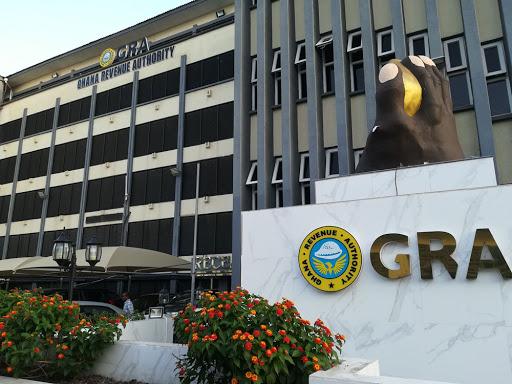The Chairman of the Parliamentary Select Committee on Lands and Forestry, Francis Manu-Adabo, has advised the Ghana Revenue Authority (GRA) to deploy geospatial data to help in the mobilising of property tax in the country.
Geospatial data is information that describes objects, events or other features with a location on or near the surface of the earth.
Speaking on the sidelines of the 1st Annual General meeting and Conference of the Ghana Geospatial Society in Accra, Manu-Adabo advised government to invest in geospatial data to fast track national development.
Citing an example, Mr. Manu-Adabo said geospatial technology will reduce the cost that will be incurred by assemblies and the tax enforcement team in collecting property tax.
"No matter where your house is hidden, it will come out, so that the District Assemblies can go to all those places to mobilise tax to build the country. Geospatial data is very important for the work of GRA”, he stressed.
He pointed out that more government agencies can rely on data from geospatial to improve their operations at an optimal level.
"Take for example, State Housing Cooperation. They advertise their houses, why don’t they show the houses at various location through geospatial, it is not difficult” he said.
He argued that one of best advantages of geospatial is to accurately identify all houses in the country for accountability.
"The best reasons why Ghana should invest in geospatial data is that there are so many houses in the country that we don’t even know where they are to collect taxes from the owners."
About Ghana Geospatial Society
The GGS is made up of seven working groups namely Geo-Social Sciences, Geo-Health and Science and Statistics, Geo-Environmental Natural Resources, Geo-Surveying, Geospatial Utilities and Engineering, Geospatial Security and the Geospatial Information Technology.
It is also made up of four Executive Committee members and seven Planning and Sponsorship Committee members.
Some of its roles are to disseminate information on advancements of the profession and establish a platform for collaboration through seminars.
Geospatial refers to location-based information, and any technology that may be used to access such information is a geospatial technology, including the widely utilised Global Navigation Satellite Systems and remote sensing.
Latest Stories
-
NPA launches Call Centre to enhance customer service
4 hours -
Environmental health officers charged to enforce air quality laws
4 hours -
NCCE holds dialogue session of Parliamentary Candidates in South Tongu
4 hours -
Federer pays tribute to Nadal for ‘epic career’
4 hours -
Retiring Nadal’s career over after Spain’s Davis Cup defeat
5 hours -
Seychelles-Ghana: Centenary exhibition celebrates Asante Kingdom’s legacy and ties
5 hours -
Nana Kwame Bediako attends Akyempimhene’s funeral; meets Asantehene after his encounter with Dormaahene
5 hours -
Guardiola agrees one-year extension at Man City
5 hours -
6 basic schools in Akosombo benefit from donation of educational materials by BOST
5 hours -
‘EC fully ready for December 7 elections’ – Bossman Asare
5 hours -
Kufuor Breaks Silence: But where was he during Ghana’s crises?
5 hours -
Google reacts angrily to report it will have to sell Chrome
6 hours -
Debt exchange measures stalled Tema-Aflao road project – Road Minister
6 hours -
Op-Ed: The Kremlin’s Media Strategy in Africa: A new front in information warfare
6 hours -
Asante Kingdom: How Otumfuo Agyeman Prempeh I and Nana Yaa Asantewaa shaped the resistance
6 hours

